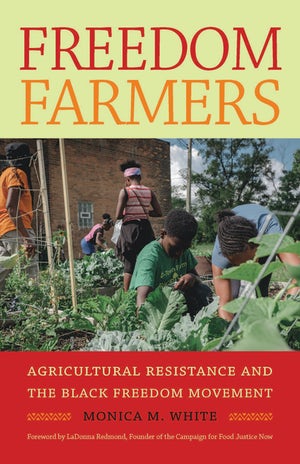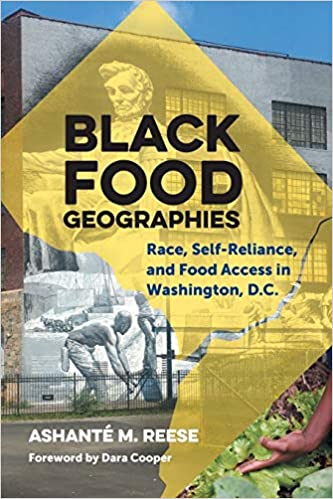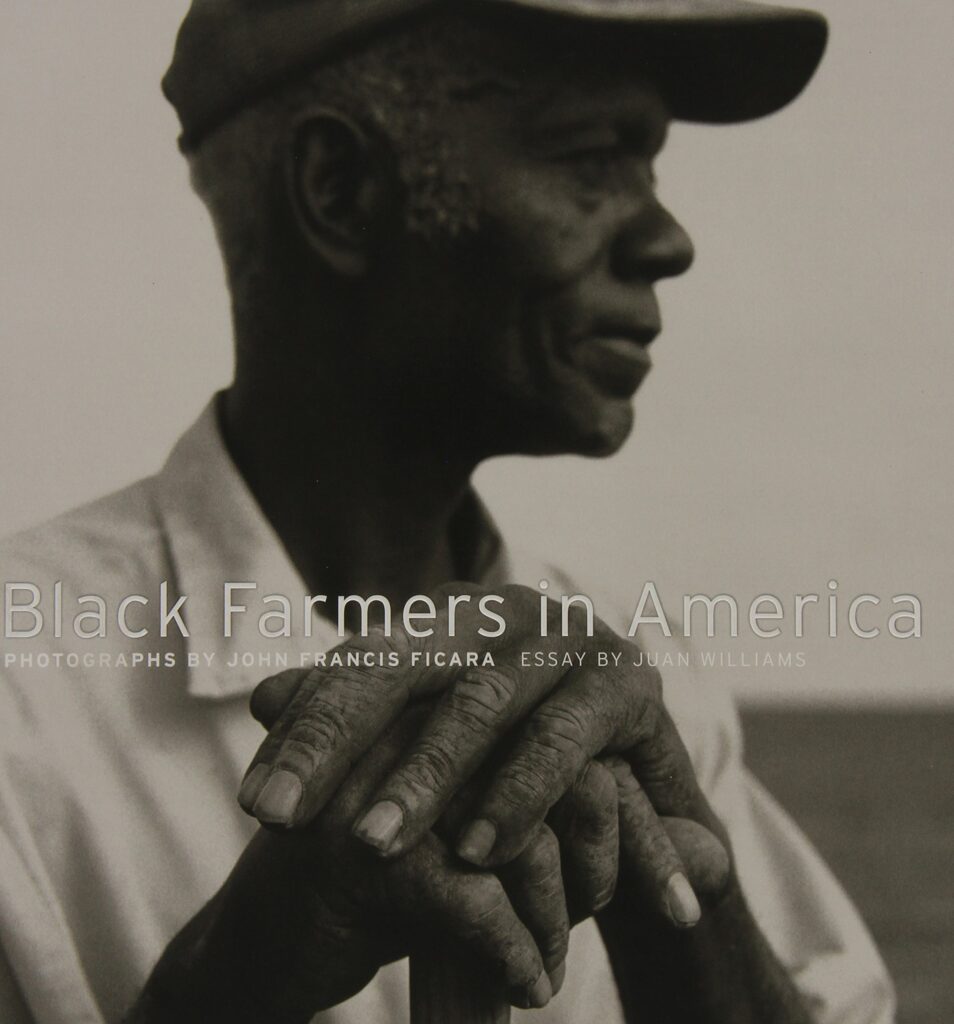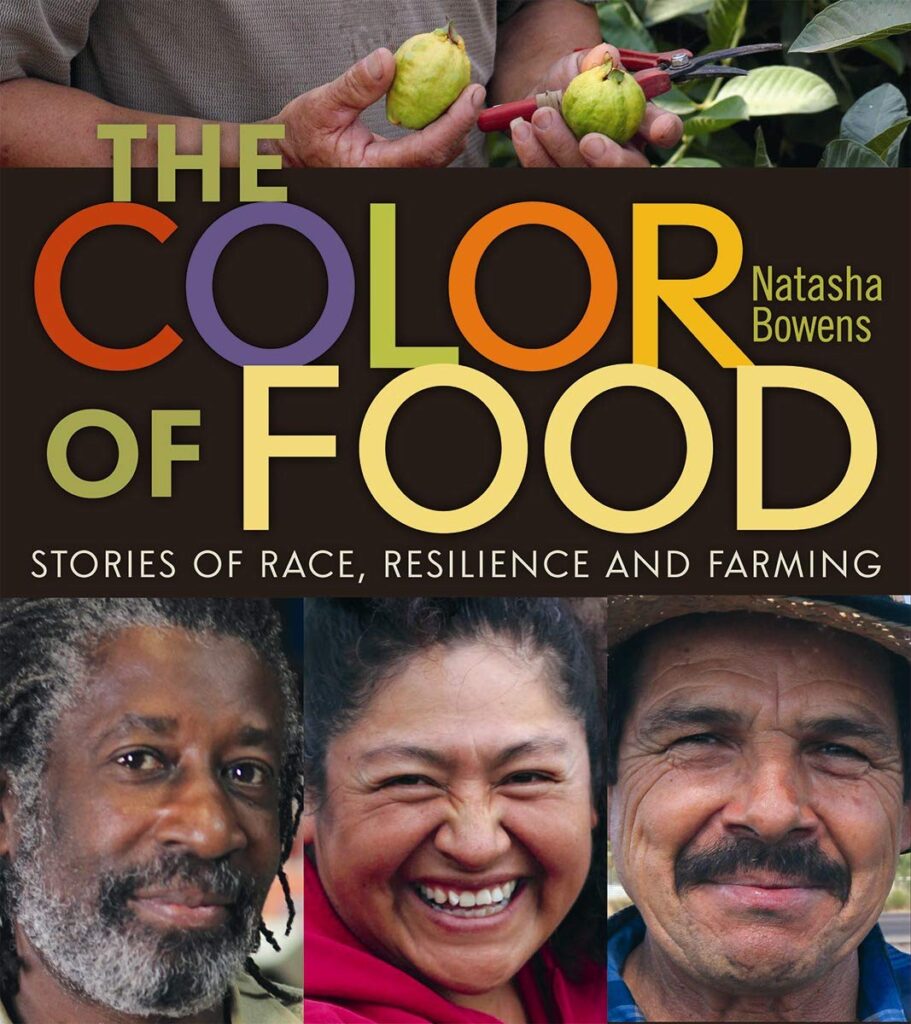
Farming While Black: Soul Fire Farm’s Practical Guide to Liberation on the Land by Leah Penniman
Farming While Black is revolutionary in that it is the first comprehensive guide for African-heritage farmers and growers to reclaim the agricultural space that is so often occupied by predominantly White bodies. The book provides technical information for beginner-to-intermediate farmers, but also encourages “all farmers to understand the distinct, technical contributions of African-heritage people to sustainable agriculture.” Author Leah Penniman, of Soul Fire Farm, highlights the wisdom of the African farmers and activists whose work inspires the techniques in the book, including farm planning, soil fertility, seed selection, and much more. The book also tells the Story of Soul Fire Farm itself, which has been noted as a national leader in the food justice movement.

Freedom Farmers: Agricultural Resistance and the Black Freedom Movement by Monica White
Freedom Farmers expands the historical narrative of the black freedom struggle to embrace the work, roles, and contributions of southern black farmers and the organizations they formed. Often, current scholarship views agriculture as a space in which Black people were oppressed and exploited. This book does exciting work in that it showcases how agriculture and farming have served Black communities and supported the resistance. Freedom Farmers also connects the history of Black farming to current conversations about food justice and food sovereignty in urban spaces like Detroit, Chicago, Milwaukee, New York City, and New Orleans.

Black Food Geographies: Race, Self-Reliance, and Food Access in Washington, D.C. by Ashanté M. Reese
In Black Food Geographies, author Ashante M. Reese shows how structural forces determine food access in urban areas. She also highlights how Black residents navigate and resist against unequal food distribution. Reese makes the vital connection between food access and systemic racism through the lens of the Deanwood neighborhood in Washington, D.C. Through her own ethnographic fieldwork, Reese documents racism and segregation in D.C. and also highlights how large food corporations shape and dictate food availability. Black Food Geographies connect individual stories to broader issues of racism and gentrification that plague our entire nation.

Black Farmers in America by John Francis Ficara and Juan Williams
Black Farmers in America, a collection of 110 photographs taken at the end of the twentieth century, captures stunning images of hardship and survival. Author Juan Williams provides a historical context for the pictures throughout the book, highlighting America’s continuous struggle with racism and the economic consequences for Black farmers. The images show both the struggles and joys of daily life on the farm and bring Black farmers to the forefront of agriculture, which is often thought of as a predominantly White space. The photos convey a dignity of work and culture, and they document the experiences of black farmers for future generations.

The Color of Food: Stories of Race, Resilience and Farming by Natasha Bowens
The Color of Food seeks to challenge the status quo of agrarian identity. Author, photographer and biracial farmer Natasha Bowens’ quest to explore her own roots in the soil leads her to unearth a larger story, weaving together the seemingly forgotten history of agriculture for people of color, the issues they face today, and the culture and resilience they bring to food and farming. The Color of Food teaches us that the food and farm movement is about more than buying local and protecting our soil. It is about preserving culture and community, digging deeply into the places we’ve overlooked, and honoring those who have come before us.
Do you have another suggestion? Email us at info@growingplaces.org to recommend more books for this list.

